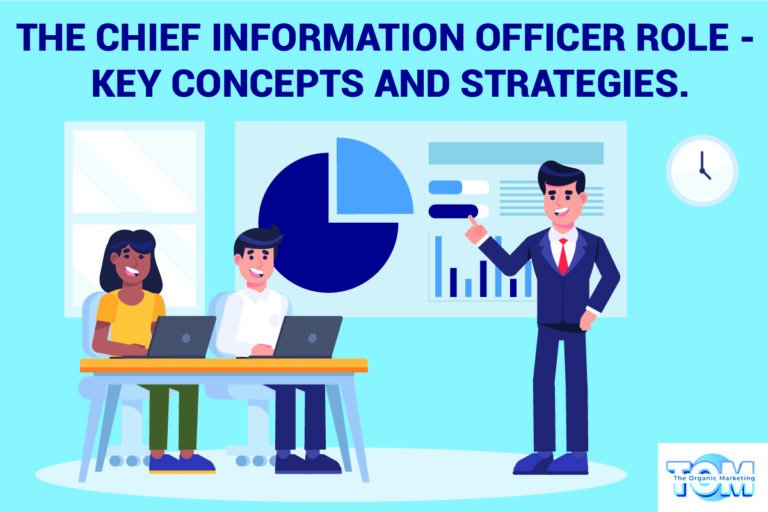Understanding Search Engine Optimization: Key Concepts
To improve a website’s visibility and ranks on search engine result pages, SEO is a comprehensive strategy. Websites may raise their organic search ranks and get targeted visitors by undertaking keyword research, optimizing on-page features, enhancing technological factors, producing quality content, establishing authoritative links, giving priority to user experience, and tracking performance. Long-term success in the always-changing field of search engine optimization depends on keeping up with algorithm adjustments and upholding proper SEO practices.
What Is SEO?
Ranking on search engine result pages or SERPs is the most important factor for any business, and that’s where SEO helps. Better ranking, better visibility. It entails a number of methods and tactics targeted at enhancing natural (unpaid) search engine traffic to a website. For companies, businesses, brands, and website owners trying to improve their online presence and draw in more relevant visitors, understanding how SEO functions are essential.
Key Concepts Of SEO:
Research on keywords
The first step in SEO is keyword research, which identifies popular search terms that are pertinent to the content of the website and its intended audience. Utilizing tools like Google Keyword Planner or SEMrush makes it simpler to understand user search intent to find popular terms that match. Another bright example can be Moz Keyword Explorer.
Web page optimization
The goal of on-page optimization is to make website components more search-engine-friendly and keyword relevant. The chosen keywords must be optimized in the following areas: title tags, meta descriptions, headers, URL structure, and content.
SEO strategies
Technical SEO focuses on enhancing a website’s technical components facilitating search engine crawling and indexing. For this to happen, websites must be optimized for performance, made mobile-friendly, have broken links fixed, have structured data markup implemented, and have XML sitemaps created.
Creating and optimizing content
An essential part of SEO is having high-quality, relevant content. Producing material that is educational, interesting, and keyword-rich aids in attracting organic visitors. Content optimization involves employing relevant headlines, organically inserting goal keywords, and optimizing photos using alt tags.
Link Bridge
Acquiring high-quality backlinks from other reliable websites is the process of link building. Search engines are informed that the website is reliable and authoritative thanks to these hyperlinks, which serve as endorsements. This can be accomplished through engaging in guest blogging, content marketing, social media sharing, and networking with key figures and websites in the field.
Participation of Users and Experience
SEO heavily emphasizes user experience. Websites providing a fruitful user experience are given importance by search engines. A better user experience is influenced by elements such as website speed, mobile responsiveness, simple navigation, and reduced bounce rates.
Analytics and Observation
Tracking SEO efforts requires regular monitoring and analysis of website performance using programs like Google Analytics. Insights for further optimization may be gained through tracking user interaction data, traffic from organic sources, rate of conversion, and rankings for keywords.
Updating Algorithms to Change
Search engines continually modify their algorithms. SEO methods may be adjusted by keeping up with algorithm adjustments, such as Google’s. Long-term success depends on adhering to ethical SEO procedures and staying away from black-hat tactics that go against search engine standards.
SEO’s Benefits in Digital Marketing
- Organic Visibility Gains: Increased organic traffic results from an increase in a website’s exposure on search engine result pages thanks to SEO. Businesses may get more qualified visitors who are actively looking for their goods or services by focusing on relevant keywords and optimizing website components.
- Affordable Approach: When compared to other forms of digital marketing, such as paid advertising, SEO offers a long-term, affordable alternative. After the original optimization is completed, continuous upkeep and enhancements demand comparatively little financial input.
- Improved User Experience: Every aspect of the user experience is improved by SEO strategies including website performance optimization, mobile responsiveness improvement, and user-friendly navigation design. A good user experience increases engagement, decreases bounce rates, and boosts conversions.
- Authenticity and Credibility: High search engine rankings build credibility and confidence in users’ perceptions. Leading to a rise in brand authority and consumer confidence, users frequently regard top-ranked websites as being more trustworthy and reputable.
- Optimized Search: SEO enables companies to target particular demographics and keywords to draw in the right customers. Businesses/brands may produce highly focused traffic and increase conversion rates by matching website content with user search intent.
Voice Search Optimization is becoming increasingly important as a result of the popularity of voice assistants like Amazon’s Alexa, Siri, and Google Assistant. Mobile-First Indexing is becoming increasingly important as mobile usage continues to dominate. AI and Machine Learning will be integrated into search algorithms to improve search rankings and user experiences. Personalization and Local SEO are expected to grow as businesses/brands need to optimize their online presence for local searches, leveraging local keywords and directory listings.
To know more about SEO and how it can boost your brand/company’s growth, contact The Organic Marketing now!






